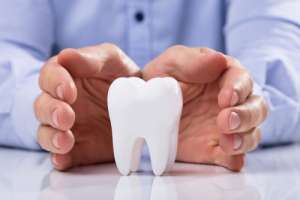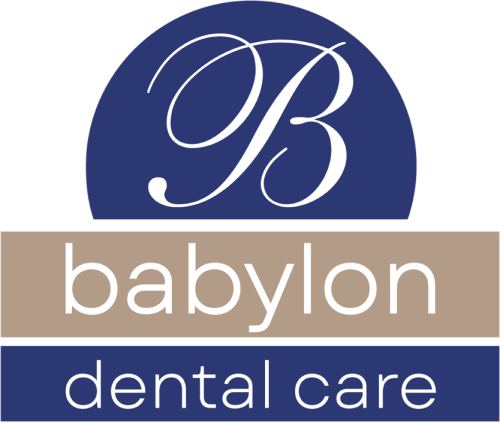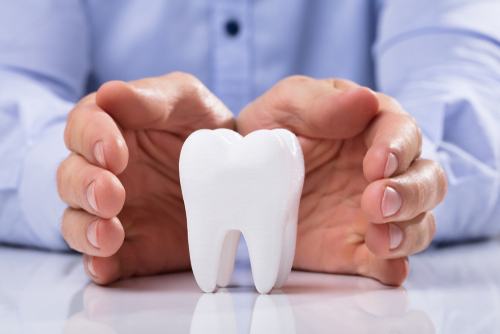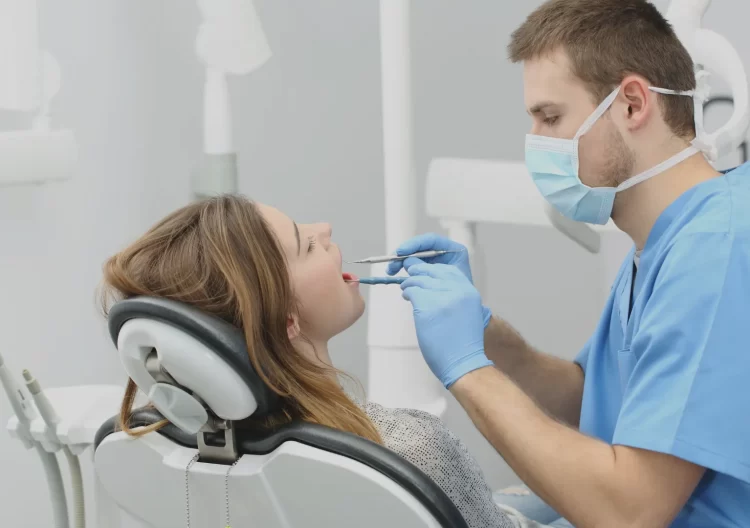 Tooth enamel is your body’s hardest mineral substance — yes, even stronger than bone! Because it’s the surface layer of your teeth, it helps protect against decay by protecting your teeth from acids and plaque. However, if you don’t take proper care of your teeth, your enamel can wear down — and once that hard outer layer is gone, it’s gone for good.
Tooth enamel is your body’s hardest mineral substance — yes, even stronger than bone! Because it’s the surface layer of your teeth, it helps protect against decay by protecting your teeth from acids and plaque. However, if you don’t take proper care of your teeth, your enamel can wear down — and once that hard outer layer is gone, it’s gone for good.
Enamel Damage: Abrasion vs. Erosion
There are two different ways your enamel can be damaged: Abrasion and Erosion. Abrasion is physical and happens when you brush too hard or scrape your teeth. Erosion is chemical and occurs when you eat too many acidic foods or regurgitate stomach acids. Erosion can also happen when plaque bacteria around your gum-line releases toxins that eat away at the enamel.
Enamel Loss: Signs, Symptoms, and Causes
There are several ways to know if you are experiencing enamel loss:
- Color and Shape: Your enamel may be worn down if your teeth seem more brittle or yellow than usual. As your enamel wears down, more or the porous, light yellow dentin layer underneath is exposed.
- Increased Sensitivity: An early sign of tooth enamel loss is an increased sensitivity to hot, cold, or sweet foods. If you feel pain or discomfort while sipping on a cup of coffee or eating an ice cream cone, you may want to speak to your dentist about how to protect — and possibly restore — your enamel.
- Chips, Cracks, and Indentations: As the hard outer layer of enamel wears away, your teeth are more vulnerable to physical abrasion. This means that scrapes or scratches that wouldn’t have damaged your teeth much before are significantly more likely to cause chips, cracks, and indentations.
Some causes of enamel loss include:
- Bulimia: Bulimia nervosa is an eating disorder that is characterized by regurgitating food after it has been eaten. Repeated regurgitation exposes teeth to stomach acid.
- Acid Reflux: Otherwise known as gastroesophageal reflux disease (GERD), acid reflux is a medical condition where stomach acid is regurgitated into the esophagus and mouth. This stomach acid can come into contact with teeth, effectively eating away at the enamel.
- Heavy Drinking: Alcohol is high in both acid and sugar, which can erode your enamel. Additionally, binge-drinking can lead to vomiting, which exposes your teeth to corrosive stomach acid.
Protecting and Restoring Tooth Enamel
Although tooth enamel that’s been worn down will not regenerate after it’s gone, there are ways to strengthen and re-fortify weakened enamel.
- Protect your enamel by brushing and flossing regularly
- To remineralize and re-strengthen weakened enamel, use toothpaste and mouthwash with fluoride as an active ingredient
- Your dentist can even provide an extra layer of protection by applying a plastic sealant that bonds to your enamel, strengthening and re-fortifying it.
Protect Your Teeth By Calling Babylon Dental Care Today
You care about your smile and the health of your teeth. Let the caring and compassionate team at Babylon Dental Care help you keep your tooth enamel healthy by scheduling regular checkups and cleanings. Now is a great time to schedule an appointment as the busy holiday season approaches, so call us at (631) 983-2937 today.



